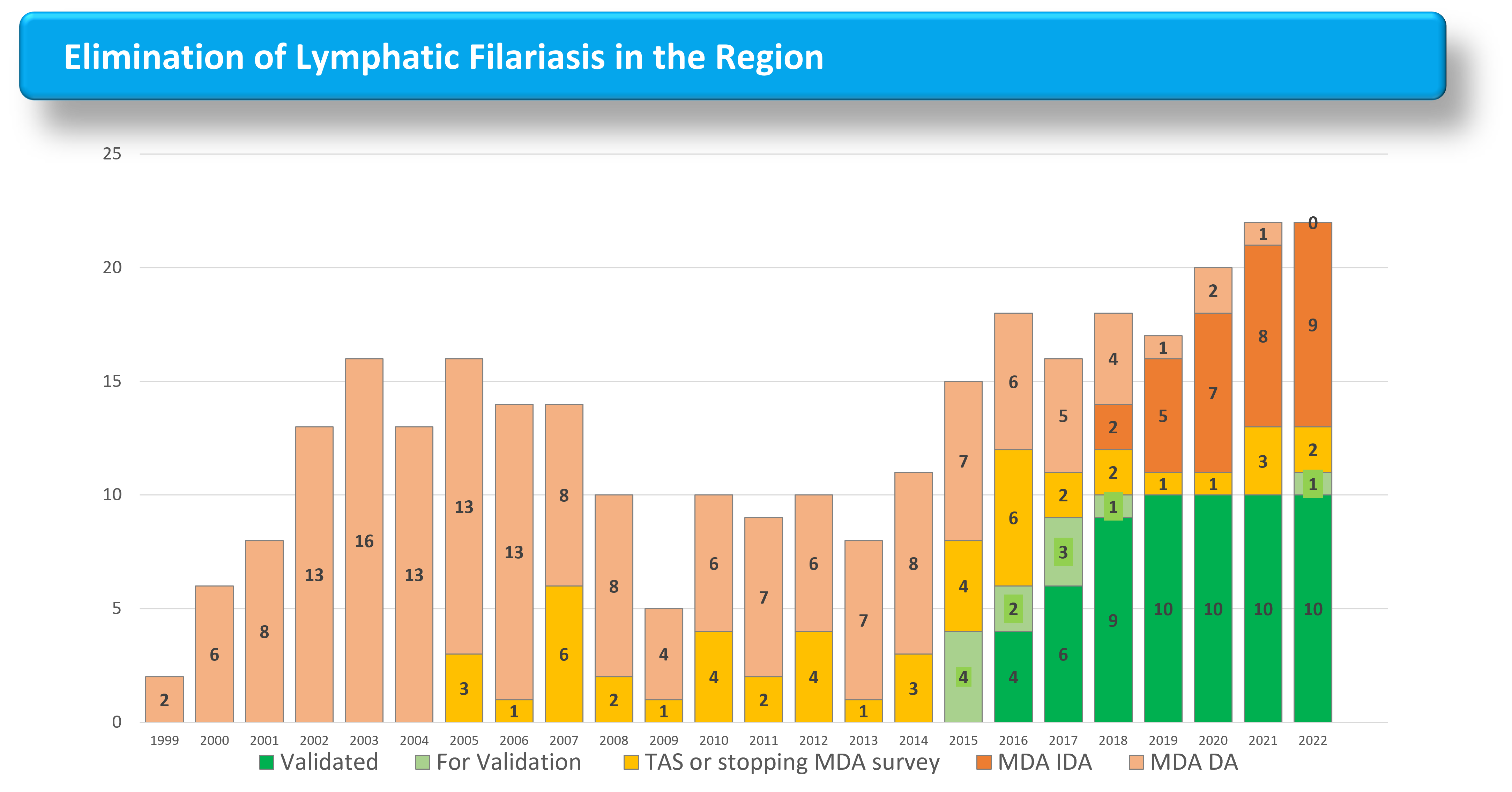Lymphatic Filariasis (or elephantiasis) is a disfiguring disease that impairs the body’s lymphatic system and causes abnormal enlargement of body parts. The parasites causing lymphatic filariasis infected 51 million people globally in 2018, especially in tropical and subtropical regions. The disease spreads from person to person through mosquito bites. This disease is on the WHO list of neglected tropical diseases targeted for elimination as a public health problem.

In the Western Pacific Region, 22 of 37 countries and areas were endemic for lymphatic filariasis as of 2016. Since then, 10 of the 22 countries and areas have eliminated the disease as a public health problem, receiving WHO validation for elimination by 2019. Cambodia, Cook Islands, Niue and Vanuatu eliminated the disease by 2016, followed by Kiribati, the Marshall Islands, Palau, Tonga, Viet Nam and Wallis and Futuna in subsequent years.
More recently, the Lao People’s Democratic Republic submitted a dossier for validation to the Regional Programme Review Group in 2022. Two other countries are conducting a Transmission Assessment Survey, and nine countries are implementing mass drug administration (MDA) of a combination of three medicines to stop the spread of infection and eliminate the disease.
For more info visit: World Neglected Tropical Diseases Day 2023